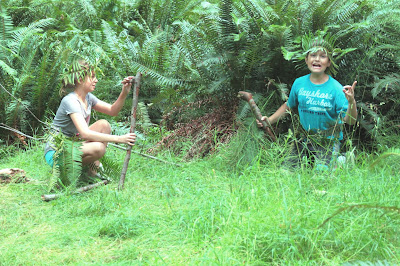Explorative Learning (AKA exploratory learning) describes a specific part of heutagogy (thanks Hase and Kenyon),
or self-determined learning, in which people explore areas of interest
without specific goals at the outset, but likely with a changing array
of goals as the process continues. In exploration, along with the
inevitably concurrent discovery, challenges, and problem-solving, people
learn.
And that is my baby, at seven months old, learning to crawl. That’s explorative learning. She's exploring her body's abilities, the room around her, and the possibility of moving around independently. She's also exploring her own vocal abilities as she expresses what I presume is excitement when she lifts herself up, and then frustration when she falls. She's also embracing the struggle of learning something new, and trying again and again. We all do this every day.
Babies do it in the womb, as they learn to move their bodies, discover lights, sounds and sensations that are new to them, and eventually come out into the air and find themselves taking their first breaths. With instincts and exploration they learn to use their vocal chords, to nurse, poop, wriggle around, and eventually to focus their eyes and look at our faces. They explore with all their senses, all the time, and within a year have usually learned to move around their environment independently, to vocalize a whole range of different sounds, to communicate most of their most basic needs, and often even their thoughts and experiences, and to feed themselves. That’s a HUGE amount of learning, and for the most part, they do it alone, through exploration, observation, experimentation, and overcoming challenges.
This is the natural learning process for adults, too, as we go about building our friendships, romantic relationships, employment and careers, homes, families and communities. There’s a reason that our driver’s licenses are graduated—it gives us time to learn the many nuances of driving through exploration, and also to master our skills through explorative, experiential learning.
In fact… exploration, experimentation, trial and error… those are the foundational concepts of all evolution. Those are how the universe came to be the way it is; how earth came to be the way it is, and how all life became as it is now, with us a part of it. Our own evolution required a whole lot of random experimentation in a rich bubbling pot of life.
School can be that dynamic, rich place. So can a healthy home-learning experience. And in fact, all children are home-learning--most are in fact unschooling--before they begin school, and on summer break, even if they do attend school. This isn’t to say school can’t be a great place. Many teachers work hard to incorporate explorative learning into their activities. Regardless of whether kids attend school or not, teachers, parents and caregivers have a responsibility to make sure our children have opportunities for healthy, supported exploration.


No comments:
Post a Comment